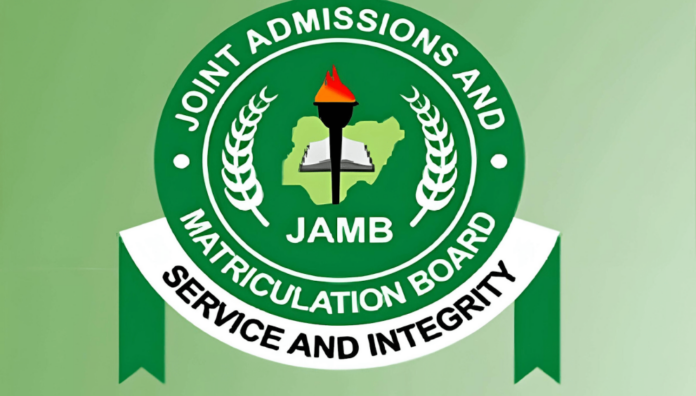The Joint Admissions and Matriculation Board (JAMB) has set up a 23-member special committee to investigate 6,458 withheld results from the 2025 Unified Tertiary Matriculation Examination (UTME) over suspected high-tech examination malpractice.
JAMB’s Registrar, Professor Ishaq Oloyede, announced the move on Monday, August 18, 2025, during the official inauguration of the committee in Abuja. He explained that the Board uncovered a growing trend of sophisticated cheating techniques during this year’s UTME, prompting the need for a dedicated investigative panel.
According to Prof. Oloyede, the withheld results are not linked to the usual cases of malpractice but involve more complex technological fraud, including biometric manipulation and identity swapping. He said the committee is expected to thoroughly investigate the cases and submit its findings within three weeks.
Prof. Oloyede expressed concern about the evolution of malpractice methods, stating that fraud in exams has moved from simple acts like copying answers to highly advanced digital crimes.
“This year we came across a number of strange things,” he said. “Malpractice has moved from traditional methods to technology-driven schemes. We are seeing issues such as image blending, albinism falsification, biometric fraud, and attempts to hack local area networks at CBT centres.”
He added that while JAMB has forwarded 141 conventional malpractice cases to its disciplinary committee, the 6,458 withheld results under review involve extraordinary infractions that require special attention and expertise.
“These are not ordinary malpractice cases,” he said. “They are highly sophisticated, and we need a range of professionals to properly investigate them.”
The newly inaugurated committee includes experienced academics, security experts, and tech professionals. Among them are:
– Prof. Muhammad Bello
– Prof. Samuel Odewummi
– Prof. Chinedum Nwajiuba
– Prof. Tanko Ishaya
– Prof. Ibe Ifeakandu
– Retired Police Commissioner Fatai Owoseni
– Dr. Chuks Okpaka of Microsoft Africa
– The President of the National Association of Nigerian Students (NANS)
Other members represent key national institutions such as the Office of the National Security Adviser (ONSA), the Department of State Services (DSS), the Nigeria Police Force (NPF), and the National Association of Proprietors of Private Schools (NAPPS).
JAMB said the presence of these bodies is to ensure a broad and objective investigation that combines academic knowledge, cybersecurity expertise, and national security oversight.
Some of the more serious cases under review include:
-Image blending: A digital technique where a candidate’s face is superimposed onto another person’s image to pass identity checks.
-Albinism falsification: Cases where candidates reportedly altered personal information or appearance to impersonate another individual.
-Biometric fraud and finger pairing: This involves one person registering and another writing the exam using advanced biometric manipulation.
-Network breach attempts: Efforts made to tamper with CBT centres’ internal systems to access or alter exam data.
“These are organised and well-planned acts of fraud,” Prof. Oloyede said. “Some of them involve the collusion of corrupt staff at computer-based testing centres.”
He noted that these findings suggest a deeper level of coordination, and that tackling such threats requires collaboration from multiple sectors.
JAMB is Nigeria’s central examination body responsible for coordinating entry into universities and other tertiary institutions. Each year, over 1.5 million candidates sit for the UTME with the hope of gaining admission.
In recent years, the board has introduced technology to improve transparency, reduce cheating, and ensure merit-based admissions. However, this has led some candidates and fraudulent operators to devise new ways to beat the system.
The current investigation is one of the largest in JAMB’s history and highlights the growing challenge of cybercrime in Nigeria’s education sector.
“We believe that God has endowed this nation with a lot of resources that we can tap from,” Prof. Oloyede said. “That is why we have brought together this committee to help us dig deeper and ensure justice.”
The committee is expected to work independently and submit its findings by early September 2025. Based on their report, JAMB will decide whether to release the withheld results, cancel them, or take legal action against candidates and centres involved.
Candidates whose results are being withheld are advised to await the outcome of the investigation. JAMB has also warned accredited CBT centres to maintain the highest standards of integrity or risk being delisted and prosecuted.
This development comes as JAMB continues efforts to sanitise Nigeria’s examination system and protect the credibility of the UTME as a gateway to higher education.
Prof. Oloyede assured Nigerians that the Board remains committed to fairness and transparency in its processes. “No innocent candidate will be punished,” he said. “But we will not spare anyone found guilty of sabotaging our exams.”

